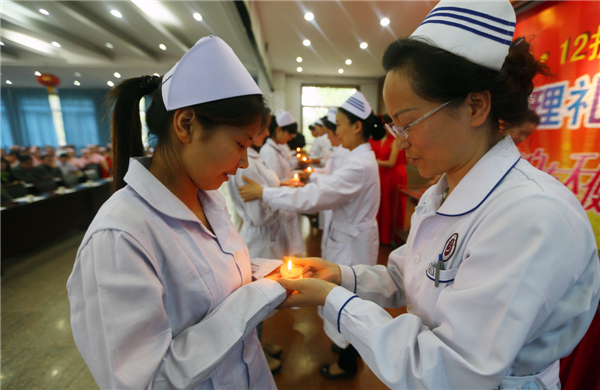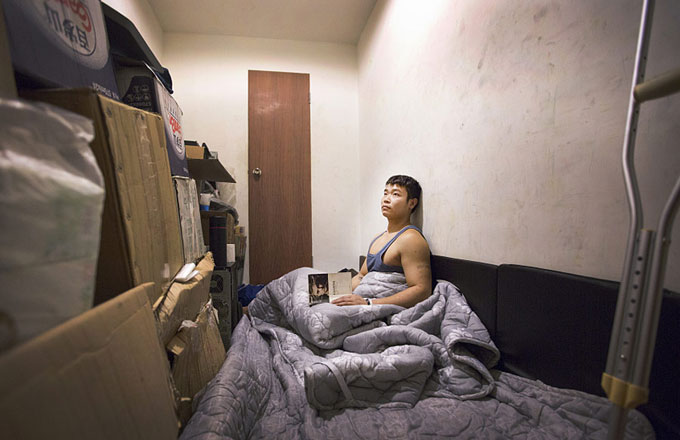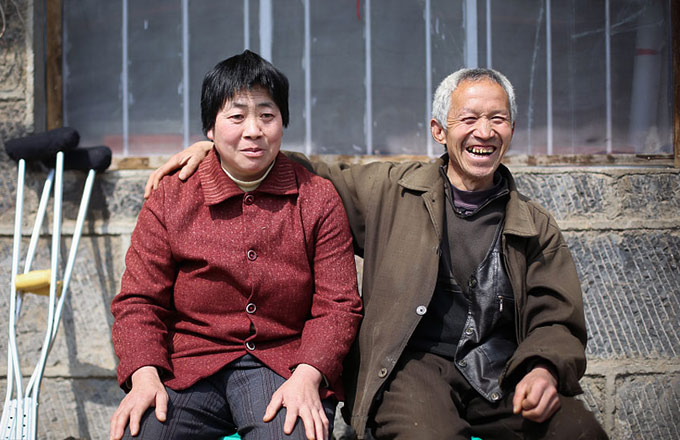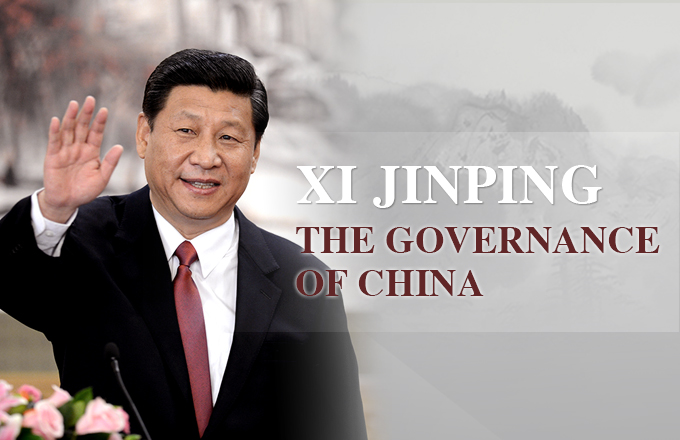Shanghai to improve grassroots healthcare
 |
|
New graduates attend a capping ceremony at a nurses' school in Huaibei, Anhui province, on Thursday. About 100 representatives vowed to carry forward the Florence Nightingale spirit and to serve patients wholeheartedly. The ceremony was held to mark the International Nurse Day on May 12. Wan Shanchao / for China Daily |
Training program with Singapore hospital to ease burden on hospitals
Shanghai has boosted training opportunities for nurses at community clinics, including overseas programs, to make them more versatile and ease the strain on large hospitals.
Shanghai Ruijin Hospital, one of the city's top public clinics, recently launched a program to train nurses in cooperation with Singapore General Hospital.
More than 560 clinical, specialist and ward-managing nurses as well as other medical staff from six bodies in a united medical service system with Ruijin hospital, will be trained in Singapore over a two-year period.
The united medical service system, part of the city's healthcare reform, allows community medical centers to work together with one large public hospital, such as Ruijin hospital, and middle hospitals.
When patients leave the hospital, they can receive subsequent treatment from nearby community medical centers.
The 6.4 million yuan ($1.04 million) program - 4.4 million yuan from Singapore's Temasek Foundation and 2.2 million yuan from Ruijin united medical system - is the first of its kind in the city, and will be conducted by nurse trainers from the SingHealth Alice Lee Institute of Advanced Nursing under Singapore General Hospital.
Trainees will receive training in various clinical specialties such as intensive care, trauma management and oncology, risk and quality management and standard operating procedures. The program also includes medical conferences and symposiums.
The first group of trainees left for Singapore in April. After the training, 125 participants will be selected from the more than 500 trained participants as specialist master trainers. They will then train another 1,000 nurses to pass on the benefits of the training.
"As China's public healthcare sector undergoes reform, we hope to learn from reputable overseas healthcare institutions in training our nursing staff," said Zhu Zhenggang, president of Shanghai Ruijin Hospital.
"I think this will help improve the overall quality of patient care, especially at community health centers," he said.
China is working to establish a family doctor model at the community level. It is also part of the country's efforts to help ease the strain on large hospitals and improve medical service quality.
Chinese patients are more likely to go to big hospitals for a minor cold because of their trust in the quality of well-known medical institutions. As a result, most city-level hospitals are overloaded with patients.
"Community medical centers are encouraged to play a greater role in providing medical services. So there will be a higher requirement on nursing staff working there," said Weng Suzhen, president of Shanghai Nursing Association, which is mainly in charge of nurse training.
As supporting measures for the development of the united medical service system, Shanghai authorities have been working on establishing a comprehensive nursing care system as a way of providing better care and improving the level of trust among patients.
"When patients leave hospitals, nurses at community medical centers will receive information from hospitals where patients stay," said Zhang Jing at Changning district's Xinjingzhen Community Health Center. "Then nurses will visit them at home to understand their condition and work out the recovery plan to provide comprehensive medical care.
"We will give some guidance for their recovery at home and also teach a patient's family some simple nursing measures."
The comprehensive nursing care system has raised the requirements for nurses, said Hu Yan, dean of Fudan University's School of Nursing.
"Under the traditional system, nurses were only responsible for a few aspects," he said. "For example, some nurses only do injections while some only take temperatures and some just do cleaning work.
"The new system requires them to not only fully master the nursing responsibilities, but also pay more attention to patients' psychological condition, which is often ignored."
Weng at the Shanghai Nursing Association said it is rolling out more training activities and exchange study programs at home and abroad for community nursing staff.
"We have made a series of training plans tailored for community nurses, such as chronic diseases nursing, elderly nursing and wound treating. These are very important for medical service work at community clinics," Weng said.
"Some of the training programs work in conjunction with international organizations and experts, which can improve nurses' skills and ability."

























